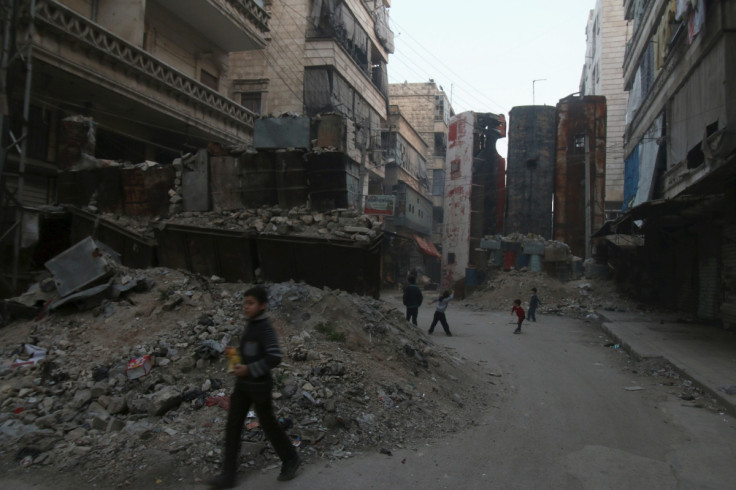'Chemical gas attack' on Kurdish-held area of Aleppo says Kurdish Red Crescent

Reports from Aleppo in Syria claim an area of the city populated by Kurds has been attacked with chemical weapons allegedly fired by forces loyal to the Free Syria Army (FSA) and Islamist groups. Videos posted on social media appear to show yellow clouds rising from the Sheikh Maqsood neighbourhood and men being treated in hospital with breathing difficulties.
According to Welat Mamo, a director of the Kurdish Red Cresent (Heyva Sor) Health Center in the district, four civilians were poisoned in the attacks. Mamo appealed to all sides to stop targeting civilians in Aleppo.
Local journalist Nawrouz Uthman told Russia Today: "The attack was carried out between 11.30 and 12.00 local time. The gas that was used in this attack, caused choking and malaise among those affected. This indicates that the poisoning substances were used in the attack. Four people have been injured."
The claims and videos have not yet been independently verified, though there have been sustained clashes in the area. According to the UK-based Syrian Observatory for Human Rights (SOHR) around 65 civilians have been injured and 14 killed in Sheikh Maqsood over the last few days. The death toll is expected to rise because "there are more than 50 injured persons, including at least 20 children, and some of them are still in dangerous situations."
There have been claims of chemical weapon attacks on Sheikh Maqsood before, usually blamed on Islamists rather than the regime of Bashar al-Assad. The neighbourhood is a small pocket of Kurd-held territory surrounded on all sides, and is often attacked but has managed to beat back Islamists inflicting heavy casualties.
Both the Assad regime and Isis have also been blamed for chemical weapons attacks during the bloody civil war and conflict in neighbouring Iraq. Isis were confirmed to have used chemical weapons at Taza in northern Iraq. Assad's forces used chemical weapons on the Ghouta suburb of Damascus in 2013, killing up to 1,400 people.
© Copyright IBTimes 2025. All rights reserved.






















